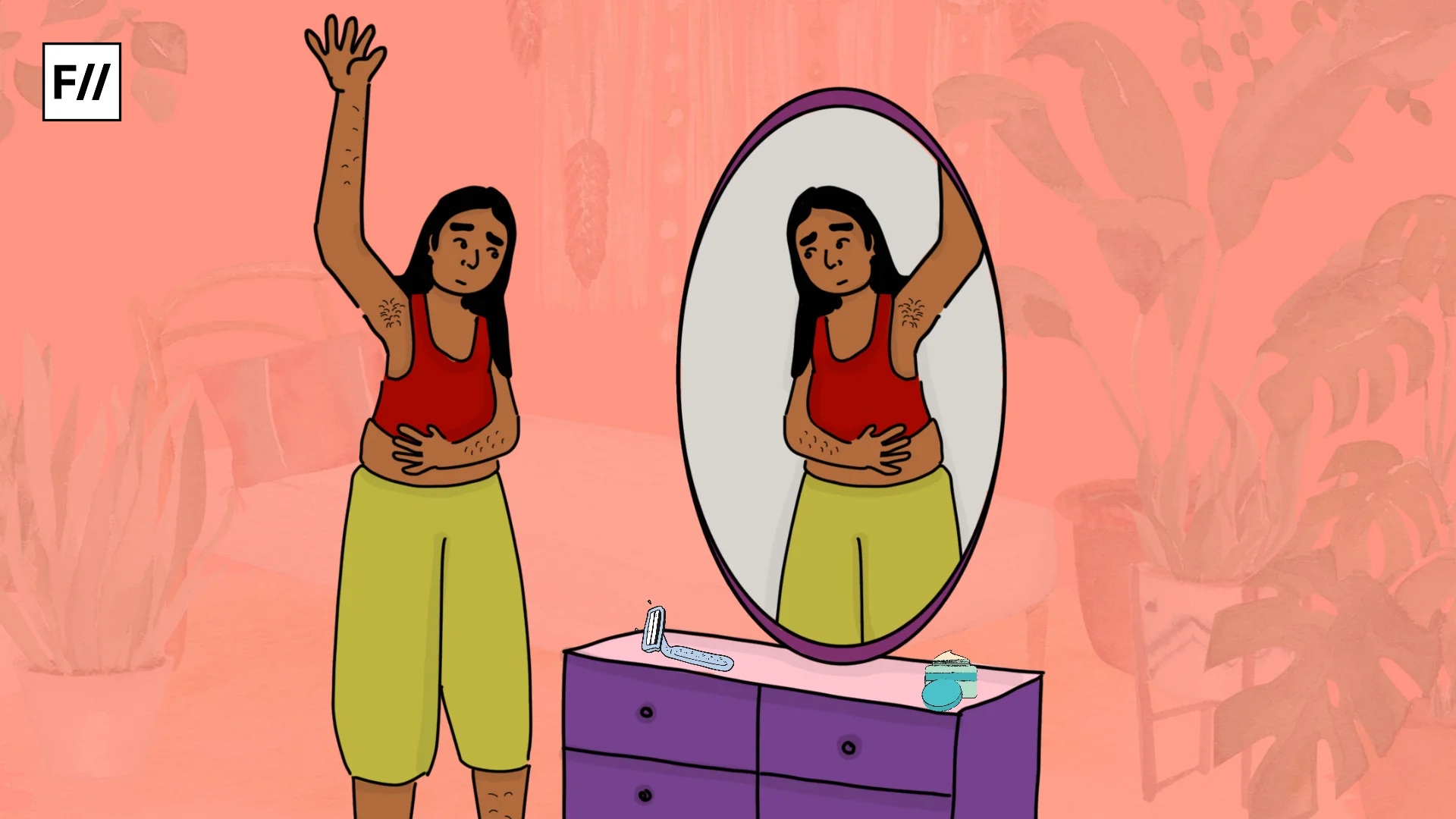Most people on my friends list have, at one point or another, found their daily news feed interrupted by one of my feminist rants. Now, as much as I enjoy pissing people off, I do also truly believe in gender equality and women’s rights. One aspect that has always been of special interest to me is the control over one’s body. I don’t just mean that in the context of abuse (although that is probably the most crucial, according to me), but also in terms of sexuality and just generally being allowed to belong to yourself.
While a huge part of the lack of control that women face is due to social structures, we are also made to be held hostage by “biology”. It appears that once you reach the age of 21, getting married, and then pregnant, are basically your raison d’etre. The doctors have started prescribing pregnancy to me like it’s wine. Got PCOD? Get pregnant. You’re 24? Get pregnant. You fractured your arm? Get pregnant. It feels like you’re in a Masterchef pressure test and you have got to get a bun in the oven before time runs out!
The reason I’m writing about this is because of a recent experience I have had with doctors. A couple of weeks ago, I was diagnosed with something called a Dermoid in my left ovary. It’s basically a solid benign cyst that has grown over time and all the doctors suggested that I have it surgically removed. While it isn’t an emergency surgery, it is critical to have a Dermoid removed when discovered as it can lead to several complications and could also turn malignant in the future. As we consulted different doctors, Amma and I found that every doctor asked me when I was going to get married. Curious cats that we are, we finally asked one of them if that was relevant.
This is when the doctor told us that it wasn’t important for the diagnosis, but she had had many patients who’d put off the surgery until they were married and, in fact, pretended not to even know about its existence. As we looked at her with puzzled faces she explained that the reason for this was that the scars from the surgery would be discovered by the husband who would then tell his parents who’d, in turn, break off the marriage! That’s right! These men seem to fancy themselves Tom Hiddlestons ’cause unless you look like him, you shouldn’t get to have an opinion on your wife’s surgery marks!
The next jolt of reality hit me during pre-op. While they were prep-ing me for surgery, the doctor told me that if I was a virgin they’d have to take my consent to operate vaginally, if required. When I asked her why they needed consent for that explicitly (having already signed a million documents stating that they could remove the damn thing), she told me that that’s because my gorgeous imaginary husband would have an issue with the lack of hymen. Obviously, protecting the sacred hymen takes precedence over, you know, the success of the surgery and my general well-being.
To be fair to these doctors, they were asking me these questions because they have had instances where these things have become issues. And that’s where the problem lies. I wish it was easy to write it off as the doctor’s mindset and that this is how these particular individuals thought. The truth of the matter is that it didn’t matter to them medically (they were some of the most competent and compassionate doctors I’ve met), but they have had to become sensitive to these patriarchal notions by having seen women, time and again, choose their husband and his family’s approval over their own health. And it angered me more that women like me (by women like me I mean a well educated, upper middle class, urban, fairly independent woman) have been forced to choose patriarchy over themselves. It makes you wonder what it means to be a well-educated, independent woman if you can’t even exercise control over your own self.
This is not to say that all the doctors I met were progressive in their thinking or are off the hook from focusing on the superficial. One example is of a charming junior doctor who, just a few hours after my surgery, found it important to point out to a fellow doctor that I had stretch marks, rather than focus on the four incisions they had made. But, hey, brownie points for attention to detail!
These past 2 weeks have been a social experiment for me, one that has yielded quite uncomfortable and disappointing results. On the bright side, I’m lucky to have an extremely supportive family who will show the door to any man who has a problem with my scars and post-surgery body.
I’m also pretty sure that Amma’s Medusa-esque glare at that junior doctor has scarred her for life.
Roshini Suparna Diwakar is a researcher at the Indian Council of World Affairs. She has a Masters degree from LSE, and Bachelor’s degree and Diploma from Lady Shri Ram College. She enjoys reading, music, and engaging in conversations of politics and gender.
Disclaimer: This article was previously published on the author’s blog here.




